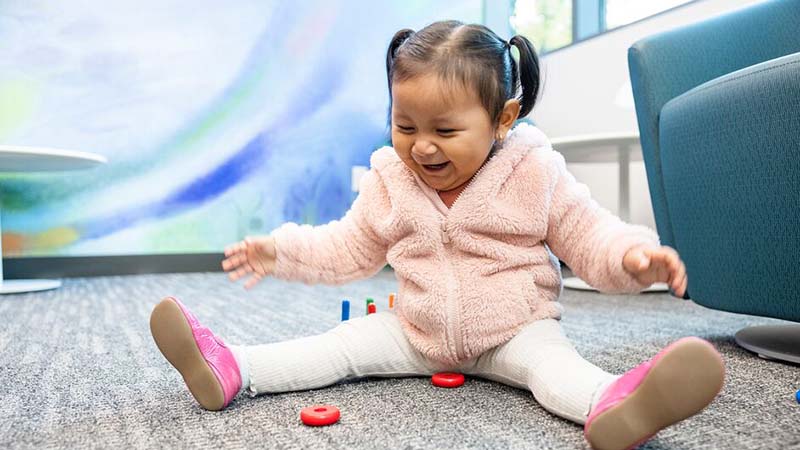Research and Clinical Trials
Autism is a spectrum of disorders with different causes and pathways, so kids with autism need personalized treatment to thrive. We do research on many fronts to better understand:
- How autism develops
- How the brain is involved
- How children and teens with autism respond to therapies and services
- What we can do to improve the quality of life for people with autism spectrum disorder and their families
Some studies collect information to help us learn about the causes and effects of autism. Others are called clinical trials. They test new treatments in people to see how well they work and make sure they are safe. We have many studies now in progress.
To learn more about how to get involved, call 206-987-7917 or email us. We can let you know of research studies that might apply to your child. If you’d like, we can add you to our research registry so that you hear about new studies that may be a good fit for your family. Your family may be able to take part in research even if you are waiting for an appointment in our clinic.
Our Autism Blog often reports on our research. These projects show the varied ways we learn about autism and how to better care for children with this condition.
-
SPARK study to create the largest bank of autism genes in the United States
Our Autism Center is a key partner in the nationwide SPARK study to collect DNA samples from 50,000 families. By shedding light on how genes affect autism, this research helps point the way to better therapies. SPARK’s goal is to learn more about autism-linked genes and to connect people to relevant studies. It matches people to studies based on genetic background, age, gender, medical history and other factors.
To learn more, see:
-
Biomarkers to improve autism diagnosis and therapy
Biomarkers are ways to measure how the body is working. Dr. Sara Webb works to develop biomarkers that tell how the brain and body are working in children with autism and other conditions that affect the nervous system. She uses many ways to get information. These include measuring electrical activity in the brain and heart.
Webb aims to create better ways to understand why some children develop autism. She also seeks to improve services for children with social challenges. She directs the Psychophysiology and Behavioral Systems Lab at Seattle Children's Research Institute.
-
Why are fewer girls diagnosed with autism than boys?
Four times more boys than girls are diagnosed with autism. Dr. Sara Webb wants to know why. It might be that signs of autism are different in females than in males. Or doctors may miss clues because girls are better at hiding their social struggles. Webb directs the Seattle site for the GENDAAR study. The study’s goal is to better understand sex differences in brain structure, function, connectivity and genetics in youth with autism.
-
Technology aids for kids with autism
Dr. Frederick Shic’s team at Seattle Children’s Innovative Technologies Lab studies and creates tools to help children with autism build social skills. The tools include a social robot and “superpower” eyeglasses to help kids identify faces and emotions. Placed on the desk next to a computer, the robot:
- Encourages children to engage with others
- Models positive social skills like taking turns
- Changes tasks based on the child’s strengths and choices
-
How ASD-linked genes affect signals between nerve cells
More than 100 genetic changes (mutations) are linked to autism. Dr. Stephen Smith’s lab works to find out:
- How these genetic changes affect brain function
- If different mutations affect brain function in similar ways
Current research focuses on the connections between the brain’s nerve cells. These are called synapses, and they control how the brain processes information. The lab’s long-term goal is to group children with autism into categories based on how their genetic changes affect brain function. This would open the door to new treatments tailored to different types of autism. His lab is part of our Center for Integrative Brain Research (CIBR).
-
Research continues to disprove link between vaccines and autism
Study after study finds NO link between the measles-mumps-rubella (MMR) vaccine and autism. Seattle Children’s doctors work to dispel fears so parents get the lifesaving MMR vaccine for their children. Our former Autism Center director wrote an editorial in the Journal of the American Medical Association about this issue.
How to Take Part in Research Studies
- To learn about research at the Autism Center, call 206-987-7917 or email us.
- See our online listing of research studies and clinical trials.
- Get answers to common questions about taking part in research, such as how we protect your child’s health and safety during research.
Ways to Help
Donations from people like you help researchers explore ideas that could lead to life-changing treatments for kids with autism. Give today.
